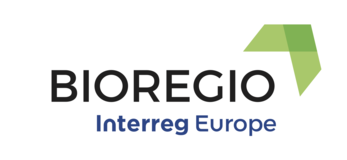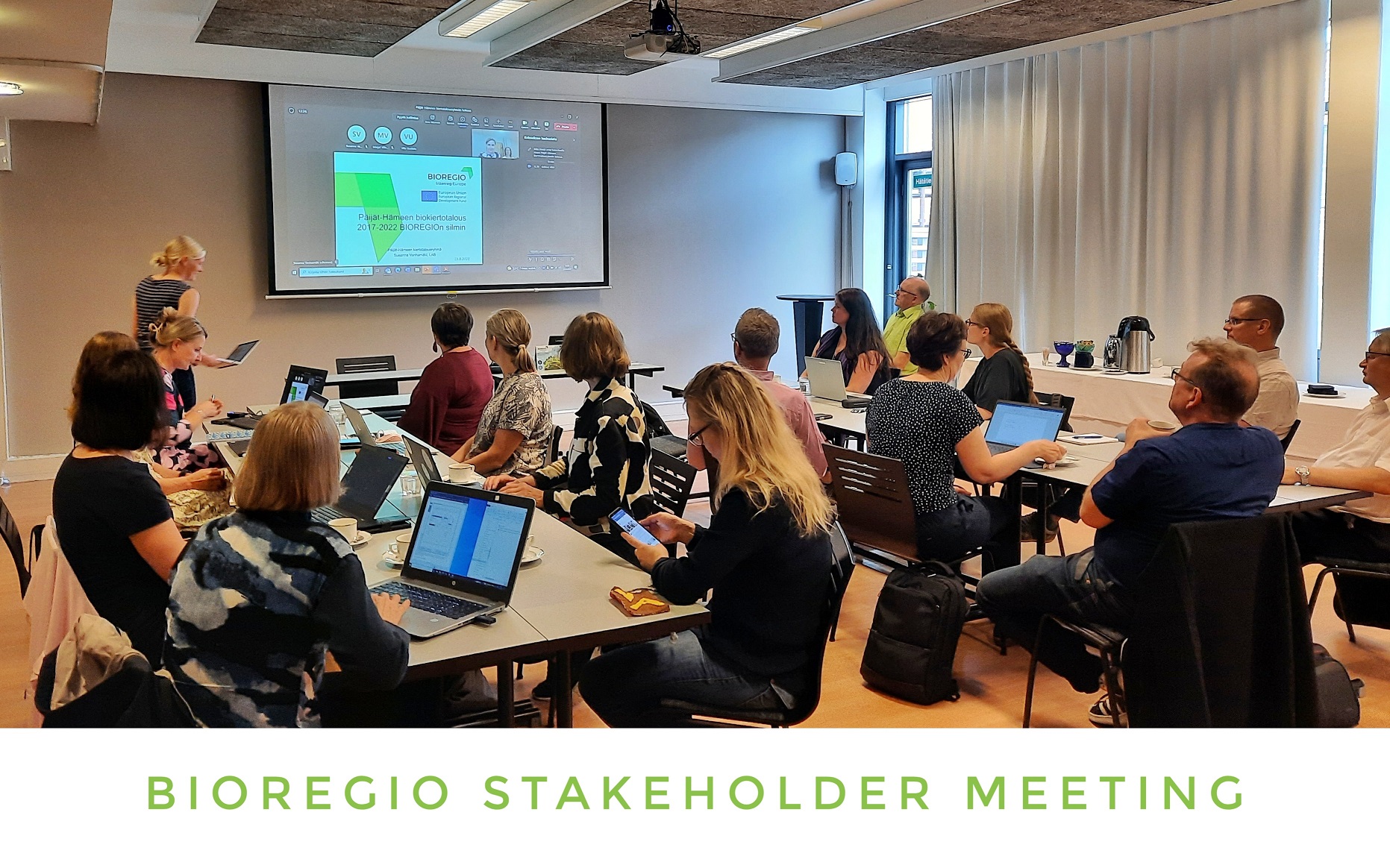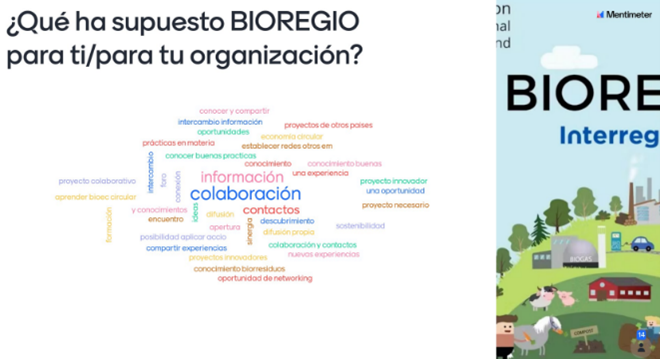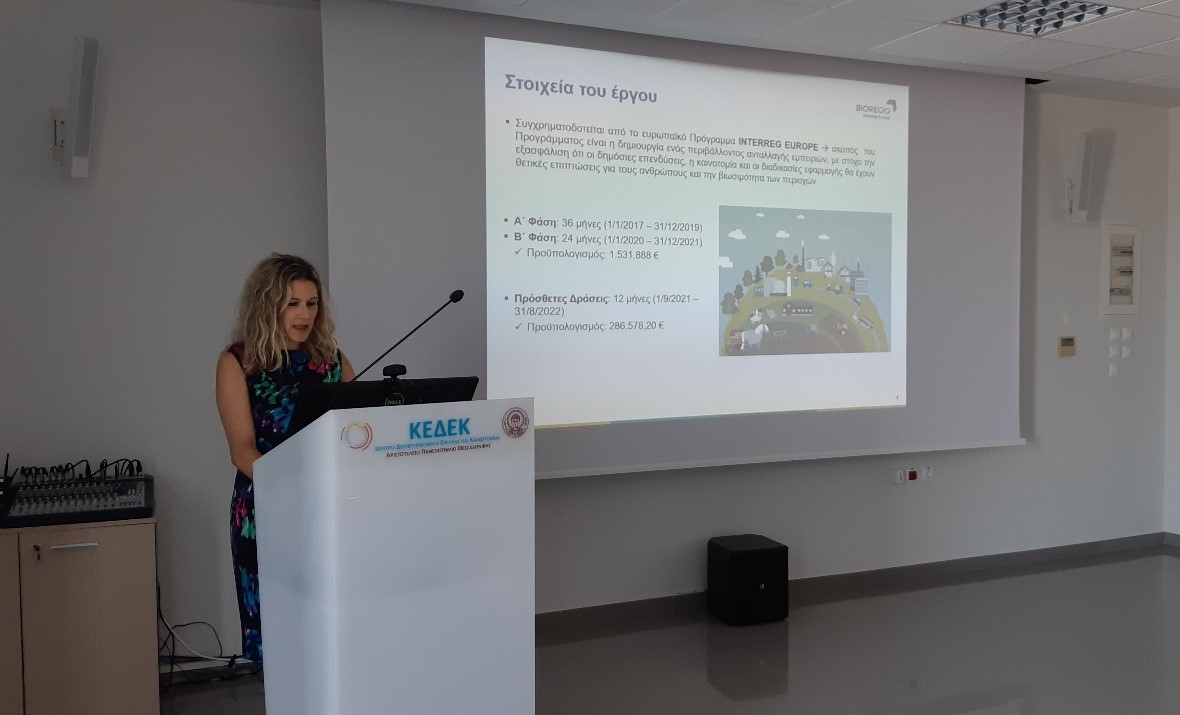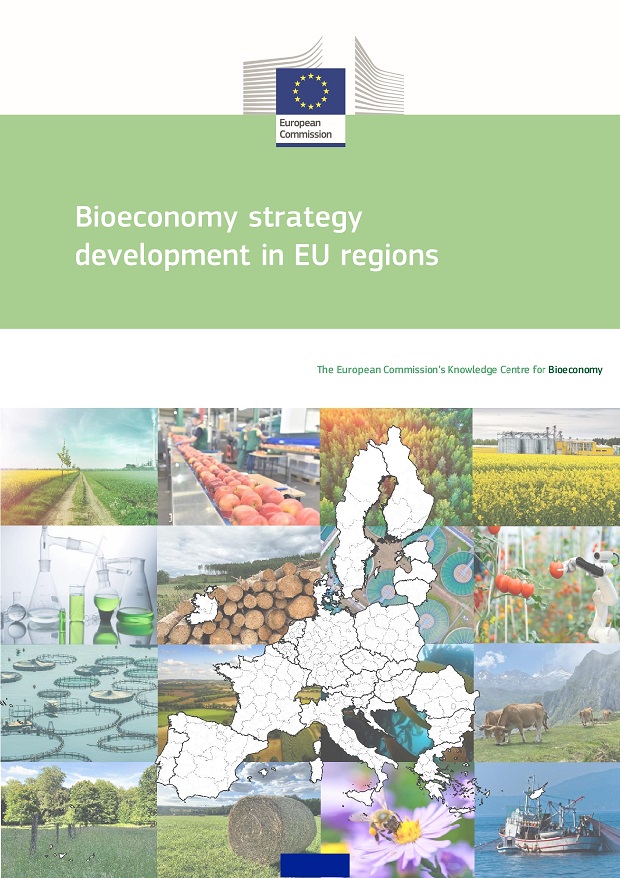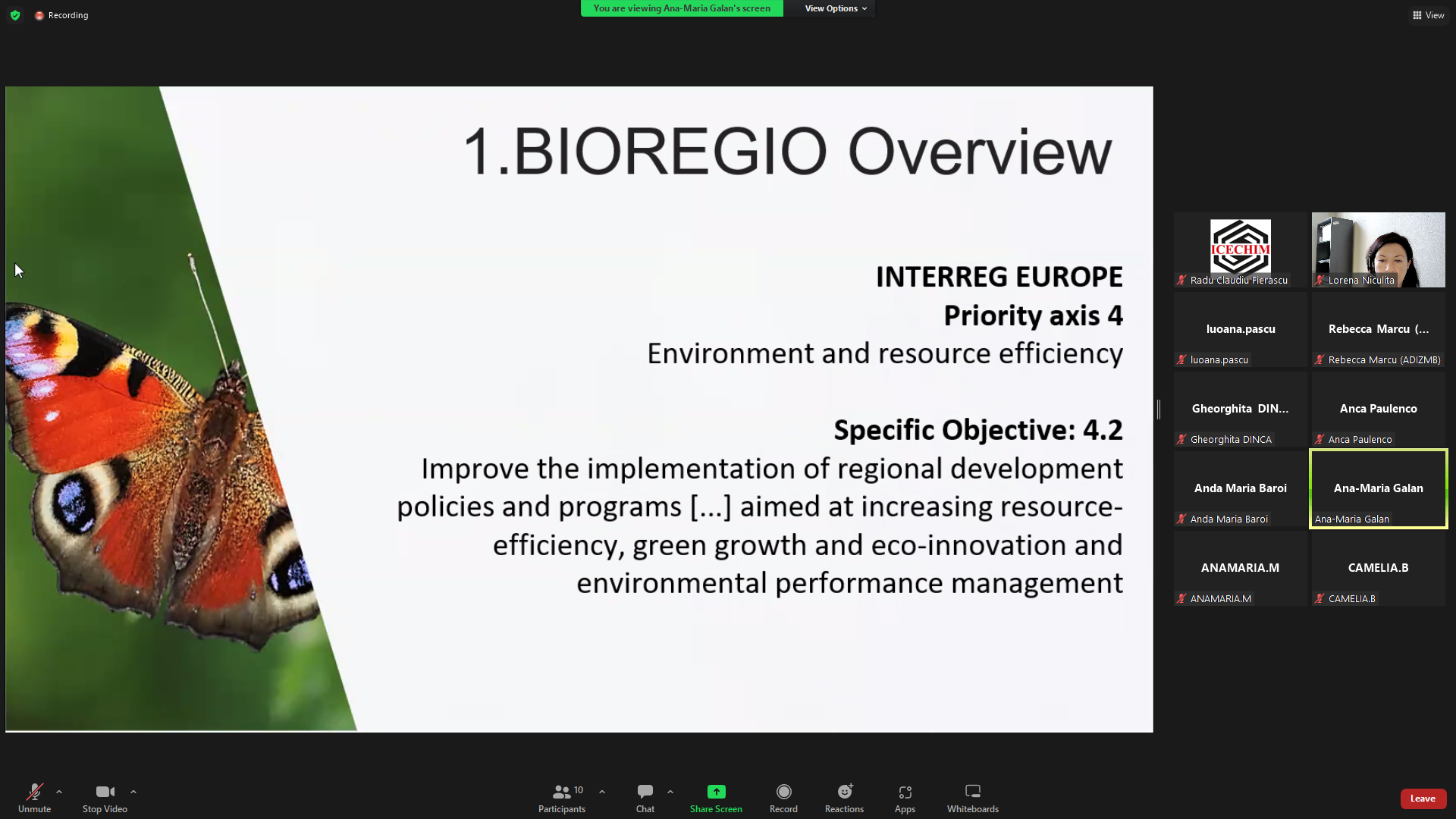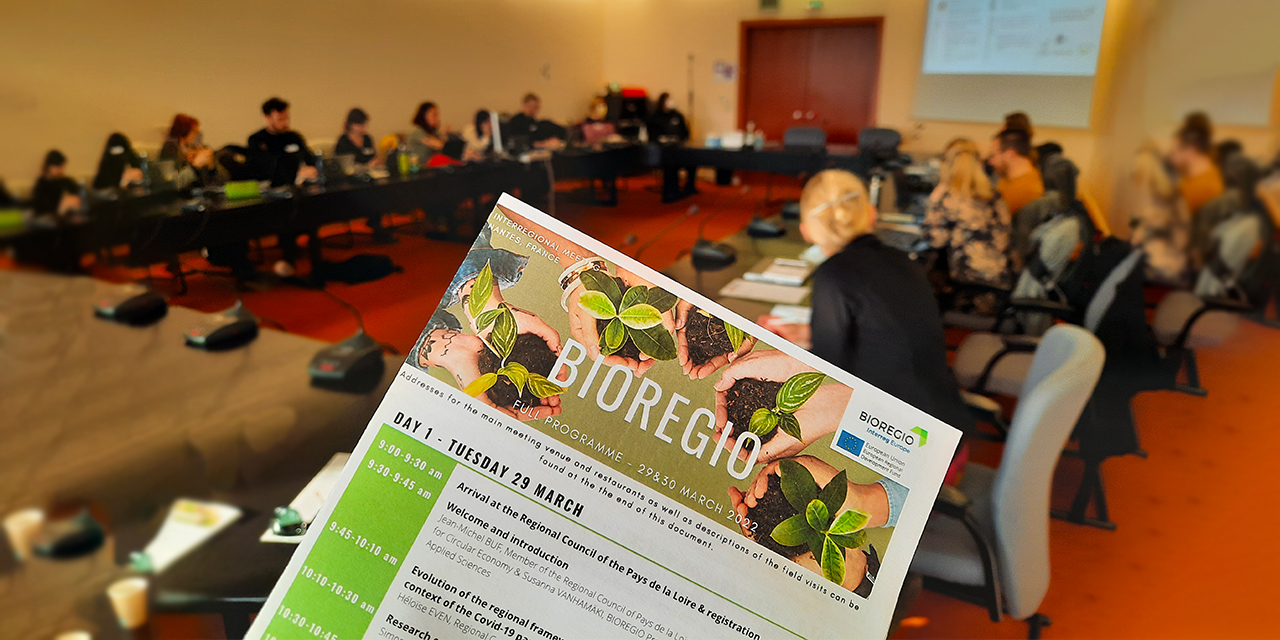9th BIOREGIO Local Stakeholders Group meeting in Thessaloniki, Greece
On 17 June 2022, the Aristotle University of Thessaloniki with the support of the Regional Development Fund of Central Macedonia on behalf of the Region of Central Macedonia, organized the 9th Local Stakeholders Group meeting in the Center for Interdisciplinary Research and Innovation of Aristotle University of Thessaloniki (AUTH).
Altogether 16 representatives of companies and institutions of the Region of Central Macedonia participated in the 9th LSG meeting along with Ms Chrysanthi Kiskini and Mr Pneumatikos Triantafyllos from PP6 and Assoc. Professor Christos Vlachokostas, Assoc. Professor Charisios Achillas and Dr Alexandra Michailidou from PP5.
Assoc. Professor Christos Vlachokostas (AUTH), a representative of BIOREGIO partner 5, opened the meeting with a brief report on BIOREGIO’s progress.
Mr Konstantinos Tertivanidis (Director of the Regional Development Fund of Central Macedonia), as a representative of partner 6, referred to the importance of developing the circular economy and bioeconomy in Central Macedonia, focusing on the practices identified by the 2 Greek project’s partners in the context of the additional actions of BIOREGIO.
Ms Chrysanthi Kiskini, Head of the Department of Scientific and Technical Support and Program Implementation of the Regional Development Fund of Central Macedonia, presented BIOREGIO’s progress since its start, circular economy good practices identified in the Region of Central Macedonia as well as the ones identified in the Region Pays de la Loire (France) that the consortium visited in March 2022. In addition, she emphasized the importance of the integration of circular economy and bioeconomy in the Operational Program of the Region of Central Macedonia and in the Research and Technology Strategy for Smart Specialization (RIS3) of the new programming period 2021-2027. She closed her speech by referring to the “Bioeconomy strategy development in EU regions” report of the European Commission, according to which, the Region of Central Macedonia is the only Greek Region (out of 13 Regions of the country) that has published a strategic document with a strong bioeconomy focus and has two Action Plans for the development of bioeconomy, one of which was developed in the framework of BIOREGIO.
The rest of the meeting was devoted to the presentation of bioeconomy-related good practices by representatives of companies and organizations of the Region of Central Macedonia.
Angelos Zamanis (General Manager of Domaine Agrovision) referred to the utilization of by-products and waste of the wine industry for the production of other products (disinfectants, waste bins, bicycle bases, doughs using wine sludge, etc.). Ms Maria Lampridi (representative of the company “Farm-B”) presented digital applications for the promotion of circular economy in the agricultural sector (information portal for the collection and visualization of agro-data, collection of information from drones using sensors, provision of available climate data, exchange of information in real time between producers and managers-consultants, etc.). Mr Christos Koidis (representative of the company “Engineers For Business”) presented technological applications to support circular entrepreneurship (integration of individual tools of intelligent agriculture and processing in a single production chain management system, reuse of materials in the supply chain of businesses to improve performance of production units, development of modern agriculture in the light of the utilization of by-products of agricultural production and processing, etc.). Dimitrios Mertzis (co-founder of the company “Bio-based Energy Technologies P.C. (BIO2CHP)”, presented the innovative small-scale fluidized bed gasifier & gas treatment system (waste-to-energy technology) that they developed for the production of green energy on-site using residual biomass as feedstock. This system enables decentralized small-scale applications in the place of feedstock origin & production, minimizing transportation & logistics costs. Ms Christina Paraskevopoulou (representative of the “Greek Logistics Company of Northern Greece”, a non-profit organization for the promotion of logistics), referred to the project "Strengthening competitiveness and sustainable development in the agri-food sector through the promotion of the circular economy" with the acronym "AGROFICCIENCY", which is implemented within the framework of the Interreg V-A Cooperation Program "Greece – Bulgaria 2014-2020". The project aims to support SMEs in the agri-food sector by creating a business support centre (One-Stop-Shop) that will provide the necessary training, guidance and networking to newly established SMEs.
The meeting closed with a discussion about the prospects and priorities for the development of the bioeconomy and circular economy through the cooperation of businesses, SMEs, agencies and associations.
